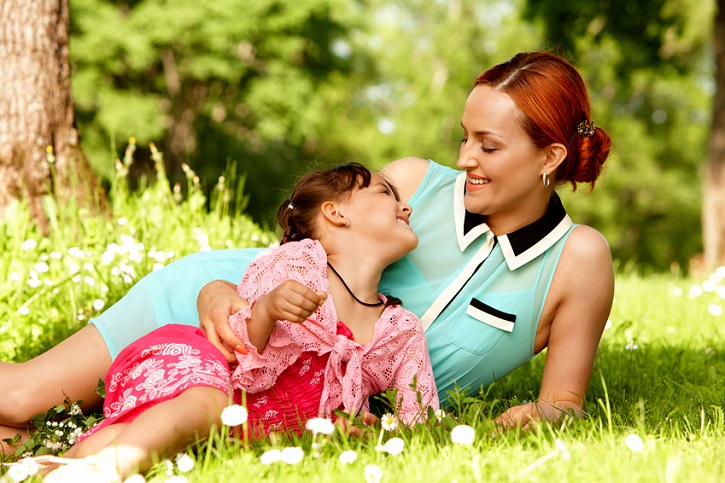
I have to be honest with you, for a long time I didn’t care what caused my anxiety. The only thing I really cared about was making it stop. This view, however, wasn’t just short-sighted, it was flat-out dumb.
In fact, there’s good reason to ponder where your anxiety comes from. Mostly, it helps answer crucial questions like why this, why now and why me? The answer to these basic questions can provide critical insight and a massive dose of reassurance.
You see, usually when people come down with anxiety, confusion quickly sets in. Clear thinking ceases and life becomes all about anticipating the worst case scenario; checking and rechecking that you’re alright.
It kind of reminds me of those people called doomsday preppers. If you’re not familiar, they’re the folks that stockpile food, survival gear, live in bunkers and sit around waiting for nuclear war.
This is a scary state of mind to be in, especially if you have no idea when disaster is going to strike. But that’s the thing, for the most part anxiety isn’t a random disaster.
There’s no doubt that it has the hallmarks of a disaster. After all, the onset is often sudden and causes great suffering. But is it really random? Does anxiety just come out of nowhere? I know it feels that way.
But for most people it’s not random. There are clear-cut reasons for the development of abnormal anxiety. And if you understand them, even on a basic level, you will open the door to a new, less terrifying, experience.
It won’t make you okay with having a panic attack, I doubt anything would, but you’ll be able to see anxiety with far more objectivity.
For me, objectivity eventually turned into downright indifference. I mean, I still get anxious sometimes, but the difference between you and me is that I don’t care. I have lost my fear of anxiety.
I do this by not giving anxiety any special meaning beyond acknowledging that it can make me feel scared and worried for a short amount of time. Right now, it’s down to about 60 seconds.
That’s how long it takes my brain to interrupt a process that used to take over my life for weeks at a time. It wasn’t easy though. And honestly, I think it took me way too long to get to this point.
Had I spent time looking into why I became anxious to begin with, I would have normalized my experience and eliminated a lot of the mystery that kept me afraid for so long.
Well, I can’t go back in time to correct this, but I can at least help you start the process of understanding what I wish someone would have told me back in the fall of 1999.
Understand where anxiety starts
Now what about to say doesn’t apply to everyone, but it does apply to the vast majority of people living with things like panic and palpitations.
Your anxiety got started while you were still in the womb. You were born with a very specific set of instructions through units of heredity called genes. These genes contained the code for your height, eye color, hair texture, there was even genetic code containing your unique brand of fearfulness.
That’s because genes also pass on personality traits. Although researchers aren’t sure how much genes influence personality, there are many studies that indicate that they do play an important role.
The field of behavior genetics has investigated this through the use of family studies, twin studies and adoption studies. For instance, researchers have looked at personality similarities between fraternal and identical twins to see if genes really do play a role in personality development.
Just to back up a second, identical twins share 100% of their genetic material, while fraternal twins do not. As a result, researchers studied identical twins to see how much they were really alike.
And it turned out that identical twins share not just many physical characteristics, but personality traits as well. That’s not to say that all identical twins are exactly the same, because they can turn out different, but compared to fraternal twins researchers found a great deal of similarity and suspected that genes had a lot to do with it.
Family studies point to a genetic influence on mental health as well. For instance, people with first degree relatives, like a parent or sibling, that have been diagnosed with panic disorder are three to five times more likely to develop panic disorder themselves. In short, your genes matter. That said, they definitely don’t tell the whole story.
Is anxiety in the air?
Some would say that the environment you grow up in can influence the development of abnormal anxiety as much or maybe even more than your genetic makeup.
For example, given that identical twins share the same genome, what explains their personality differences? Researchers believe that this happens because the environment can act as a signal that activates, or deactivates, certain genes.
In fact, recent research out of the University of Arizona says that some kids are born with tweaked genes that can disrupt the regulation of neurotransmitters like dopamine, which helps govern movement and emotion.
These children have been called “Orchids” due to their fragility. They are very sensitive to the environment because of differences in the makeup of their nervous systems. What that means is that they tend to be anxious, easily distracted, and act out more when faced with adversity. Orchid children are “biologically reactive to stress.”
They are more sensitive to things like parenting style, peer groups, danger, loss and abuse. And what happens when an Orchid child has an Orchid parent? Generally, it means less than stellar parenting during times of stress. So the environment, both past and present, plays a huge role in the development and expression of abnormal anxiety.
When anxiety is seen through the lens of biology and environment it becomes far less mysterious. Thinking about your anxiety in these terms gives you a reason to believe that you won’t be harmed the next time you experience dizziness or palpitations, for example. In my opinion, it’s way better than blind hope.
I want to say much more about this topic but instead of slugging it out here, I’m going to take to the digital airwaves. In this week’s episode of The Anxiety Guru Show I explore nature vs. nurture and which one may have contributed more to the development of your abnormal anxiety.
In this episode, I discuss:
- The genetics of fear
- Environmental factors that can cause anxiety
- How trauma can impact your genes
- How anxiety changes the brain
- What steps to take when you are biologically anxious
Listen to The Anxiety Guru Show…
To listen, you can click the play button below or visit the AG iTunes page.





The nature vs nuture thing is interesting. Based on my experience (6 siblings and a father with anxiety) and that of my anxiety support group (20-odd people all, to a man, with family history of anxiety), I’d say nurture has very little to do with it. Like all things health related you just can’t beat your genes.
Hey Todd, I agree that genes can play a huge role (perhaps the primary role), but I think the environment can shape those genes in both a positive or negative manner.
I agree ,my father suffered terrible.
Agree.
I enjoyed hearing more about your specific life experiences. I always find it comforting to talk about my anxiety disorder in discrete tangible form. I know that I am definitely genetically predisposed to abnormal stress and worry but am learning how to accept that and beginning to fully understand and be aware.
Your story is motivating… You’ve accomplished so much based on your own motivation and volition.
Thanks for sharing.
Great article. Yes, anxiety is one of the many problems nowadays that can be experienced by almost all ages. Anxiety must be given proper treatment and attention, before its too late.
Pamela
https://haartfelt.com
That was a wonderful podcast! I was just wondering if strange thoughts caused by anxiety such as feeling trapped on Earth or like something is not really happening can be cured using similar techniques?
Hey Samantha, yeah I believe you can. The reason this works is because although anxiety manifest in different forms, ultimately it is the fear and generalizing that cause problems. If you can deal with these issues effectively then all symptoms, no matter how weird, can be decreased.
Thank you so much!
Dear Mr Paul,
I would like to thank you very much for this website! It had found it to be extremely useful!!
It helped me understand my anxiety much better.
I hope you carry on the good work!!
Regards
Ahmed
Interesting article…..but as a parent with anxiety who worries about his 8 year old daughter exhibiting signs of anxiety….hoping it isn’t my fault doesn’t help! Nature or nurture, either way it’s my fault!! My genes gave her the anxiety and my anxious behaviour is making it worse.